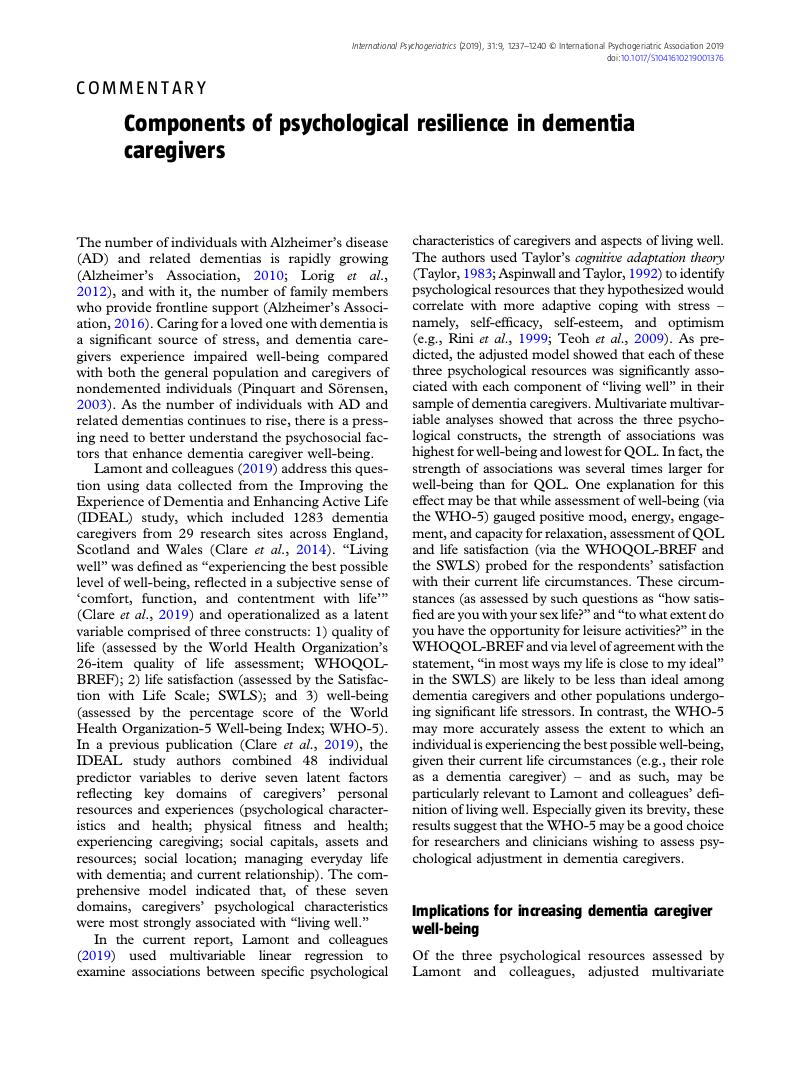Crossref Citations
This article has been cited by the following publications. This list is generated based on data provided by Crossref.
Sarabia-Cobo, Carmen
and
Sarriá, Encarnación
2021.
Satisfaction with caregiving among informal caregivers of elderly people with dementia based on the salutogenic model of health.
Applied Nursing Research,
Vol. 62,
Issue. ,
p.
151507.
Zhou, Yuanjin
Hasdemir, Dilara
Ishado, Emily
Borson, Soo
and
Sadak, Tatiana
2023.
Validation and expansion of a behavioral framework for dementia care partner resilience (CP-R).
Dementia,
Vol. 22,
Issue. 7,
p.
1392.



